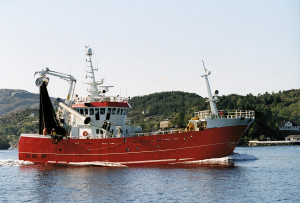Europa legalizează pescuitul excesiv
Pescuitul excesiv este legalizat în mod structural în Europa. Aceasta este consecința Planului Multianual privind Gestionarea Pescăriilor din Marea Baltică, asupra căruia s-a încheiat un acord între statele membre UE și Parlamentul European. Partidul pentru Animale atenționează că planul convenit este în contradicție cu înțelegerile anterioare de a opri pescuitul excesiv până în 2020. ”Acest plan legalizează pescuitul excesiv nu numai în Marea Baltică, ci pe cale indirectă și în Marea Nordului și alte ape din UE”, este de părare europarlamentarul Anja Hazekamp, care a participat la negocieri în numele Partidului pentru Animale.

Negocierile cu privire la planul de gestionare a pescăriilor din Marea Baltică s-au derulat extrem de încet, durând luni de zile. Echipa de negociere a Parlamentului European a solicitat oprirea pescuitului excesiv până în 2020. Conform europarlamentarei Hazekamp, ”este necesară readucerea pescuitului la un nivel durabil pentru a preveni golirea completă de pești a mărilor noastre. Șapte dintre cele opt specii de pește din Marea Baltică sunt în pericol din pricina pescuitului excesiv și a altor factori. Marea Mediterană se află sub o amenințare foarte serioasă și chiar și în Marea Nordului se găsesc populații de pești cu probleme. Planul multianual pentru Marea Baltică reprezenta un început pentru oprirea pescuitului excesiv.”
În cadrul negocierilor, Țările de Jos și alte state membre UE au refuzat în loc să accepte anumite limite pentru un pescuit durabil. ”Statele membre UE au permis stipularea anumitor excepții ce au ca urmare un nivel și mai mare al pescuitului. Majoritatea echipei de negociere a cedat la presiunile statelor membre și ale Comisiei Europene. Urmările sunt grave și nu se vor limita la Marea Baltică,” avertizează Partidul pentru Animale, care nu a fost de acord cu înțelegerea privind pescuitul excesiv.
”Planul pentru Marea Baltică va reprezenta un punct de plecare pentru Marea Nordului, Marea Mediterană și alte ape europene. Pescuitul excesiv din punct de vedere structural din Europa este astfel legalizat,” conform Anja Hazekamp.
Există totuși o șansă de a opri legalizarea pescuitului excesiv. Întregul Parlament European trebuie să adopte acest plan prin vot în plen cu toți cei 751 membri.
Facțiunea Partidului pentru Animale de la Camera Deputaților ridică semne de întrebare cu privire la rolul pe care Țările de Jos l-au jucat în cadrul constituirii planului pentru Marea Baltică. Deputatul Frank Wassenberg a adresat întrebări parlamentare către secretarul de stat Van Dam cu privire la poziția Țărilor de Jos în cadrul negocierilor.
Overfishing in Europe will be permanently legalised. This is due to the Multiannual Plan for Fisheries in the Baltic Sea on which a deal was concluded between the EU member states and European Parliament this week. The Party for the Animals warns that the agreed plan is in defiance of earlier commitments to put an end to overfishing before the year 2020. “This plan will not only legalise overfishing in the Baltic Sea, it will consequentially make overfishing in the North Sea and other European waters legal as well,” says MEP Anja Hazekamp, who took part in the negotiations on behalf of the Party for the Animals.

The months of negotiations on the plan for fisheries in the Baltic Sea advanced with difficulty. The EU negotiating team called for an end to overfishing before the year 2020. “Gradually reducing the level of fishing to sustainable levels is absolutely necessary to prevent our seas from becoming completely fished out. Seven out of the eight fish species living in the Baltic Sea are endangered due to overfishing and other factors. Fish populations in the Mediterranean Sea as well as in the North Sea are under serious threat. The multiannual plan for the Baltic Sea was our chance to start tackling the issue of overfishing,” according to Hazekamp.
However, as the negotiations proceeded, the Netherlands as well as other EU countries refused to accept a sustainable fishing limit. “EU member states kept negotiating exceptions which would allow them to fish over the set limits. A majority of the negotiating team changed their minds due to great pressure from the member states and European Commission. This will have major consequences which will not be confined to the Baltic Sea,” warns the Party for the Animals, which did not support the overfishing deal.
“The Baltic Sea Plan will also serve as a starting point for the North Sea, the Mediterranean Sea and other European waters. It will thereby legalise structural overfishing in Europe,” says Anja Hazekamp.
There is one final chance to stop the legalisation of overfishing. The plan still has to be adopted by the entire European Parliament in a plenary vote with all 751 members.
The Party for the Animals´ Lower House faction questions the role that the Netherlands has played in the realisation of the Baltic Sea Plan. MP Frank Wassenberg has posed questions in Parliament to State Secretary Van Dam about the input from the Netherlands during negotiations.